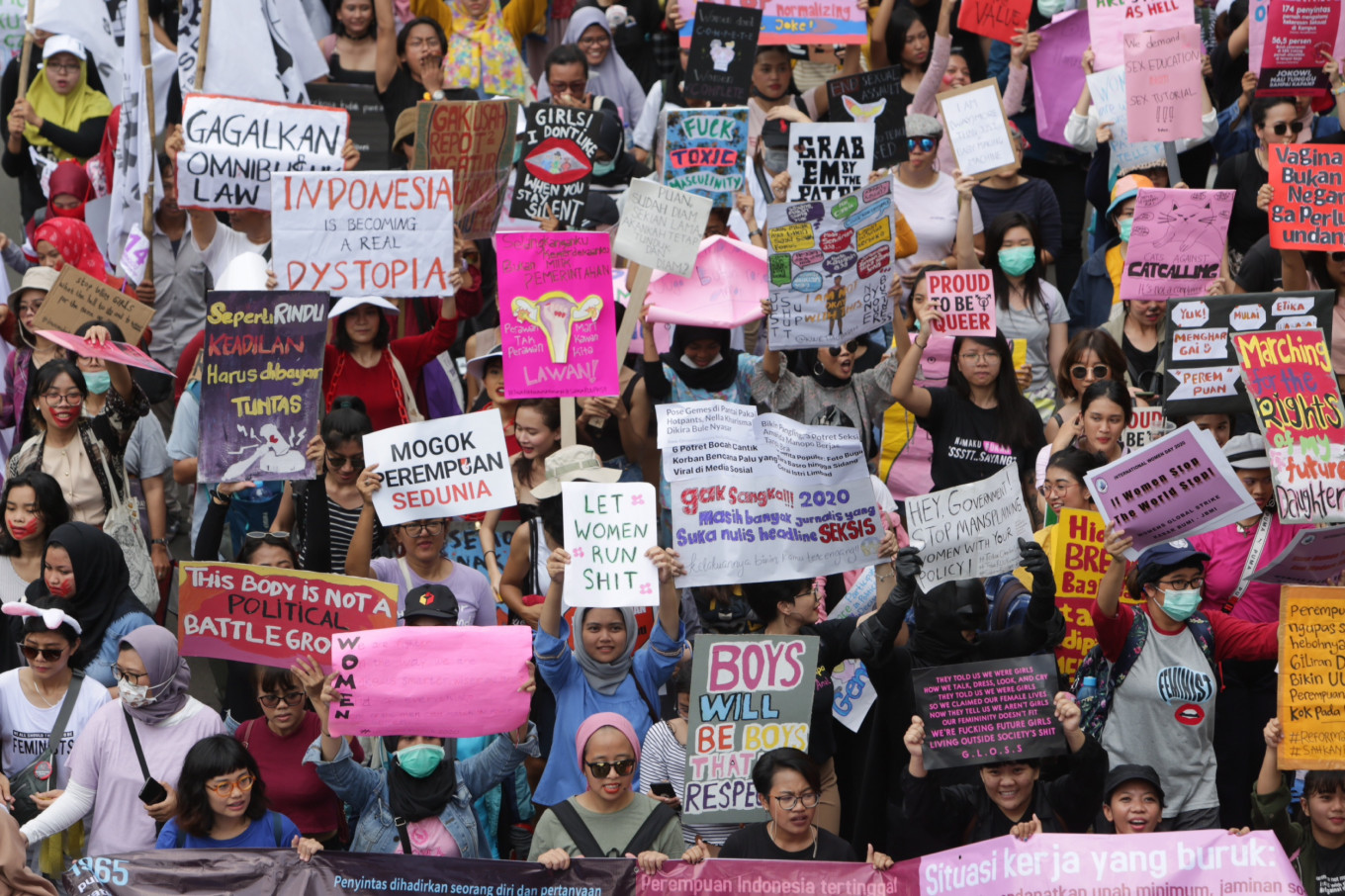Popular Reads
Top Results
Can't find what you're looking for?
View all search resultsPopular Reads
Top Results
Can't find what you're looking for?
View all search resultsWelcome to Generation Equality, stop child marriage!
From Sweden, Pakistan to Indonesia, a new generation is making change, fighting for equality and shaping the world.
Change text size
Gift Premium Articles
to Anyone
T
his year International Women’s Day (IWD), which falls on March 8, is quite special, as it marks 25 years since the adoption of the Beijing Declaration and Platform for Action — a progressive roadmap for gender equality, to end discrimination against women and girls.
The theme for IWD 2020 is Generation Equality that highlights the fact that today young people, girls and boys are speaking up for themselves and for their peers who have faced discrimination or have been silenced. From Sweden, Pakistan to Indonesia, a new generation is making change, fighting for equality and shaping the world.
There are 12 critical areas in the Declaration and Platform for Action, from poverty, education and training, health, gender-based violence to women in politics, media and environment, to discrimination faced girls. Why focus on girls?
Discrimination faced by girls around the world limits their abilities to take advantage of opportunities and to access education and training, social and productive assets and by the time girls reach adulthood, to have better employment, health and well-being and even equal position in society as their male peers.
There is no denying that globally the state of women and girls has improved, albeit with varying progress and trend among countries. Unfortunately, not all barriers have been eliminated to enable girls without exception to develop their full potential and skills, as envisioned in Beijing 25 years ago.
Indonesia is among the countries that are making significant progress in terms of gender equality. More girls are going to and staying in school and the gap between boys and girls in girls staying in school longer is narrowing with 8.9 years for boys and 8.6 years for girls.
Sadly, girls are five times more likely than boys to be victims of physical violence, two times more likely as victims of emotional violence according to the Office of the Coordinating Human Development and Culture Minister and 11 times more likely as victims of sexual violence.
Adolescent girls and boys are still not receiving adequate information about their sexual and reproductive health and access to services in this regard, either in school or at home.
The number of child marriage in Indonesia is the second highest and the eighth highest in the world. Statistics Indonesia (BPS) recorded 1.2 million children who were married in 2018, or 11.2 percent from the total child population, mostly in rural areas.
One out of nine Indonesian females aged 20-24 were married before turning 18. In contrast, only 1 out of 100 Indonesian males in the same age range were married before 18 years old. Child marriage in Indonesia is driven by several factors such as poverty, social and cultural norms, lack of girls’ and boys’ understanding of sexual and reproductive health and unplanned teenage pregnancy.
The latter factor is backed up by Asia Girls Report released by Plan International this month. The report showed that the adolescent birth rate in Indonesia was 47.4 percent.
The government has stepped up its commitment to tackling the issue of child marriage and aims to reduce the rate to 8.74 percent by 2024.
The recent legislation to increase the minimum age of marriage for girls to 19 years old is a significant step but not a panacea. Bolder focused and coordinated efforts are needed to ensure that girls stay in school, stay out of wedlock and can meet their potential.
These need the involvement of communities, parents and very importantly children and young people themselves, such as successfully shown by the Regional Child Protection Commission (KPAD) in Rembang (Central Java), Lombok (West Nusa Tenggara) and Sukabumi (West Java).
We are still far from the vision of gender equality that was set in Beijing 25 years ago. The situation of child marriage as described above could be the defining aspect of gender equality in Indonesia and the future of human capital of the country.
Business as usual is not the answer. Bolder actions are needed and this will likely happen by letting children and young people speak up, colead decision making and setting the vision for a gender-equal world.
Please welcome Generation Equality!
______
Salsa is a 17-year-old gender activist and Dini Widiastuti is executive director of Plan International Indonesia.










